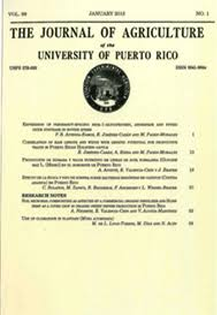Abstract
Field studies to evaluate the efficacy of OMRI-certified fungicides and other materials for control of early blight caused by Alternaria solani and Septoria leaf spot of tomato were conducted in Lexington, Kentucky during 2009 and 2010. Nine fungicides as well as ammonium bicarbonate and chitosan were evaluated in an organic production system. The most effective fungicides for managing Septoria leaf spot and early blight of tomato were copper based. None of the biological-based products (Sonata® and Serenade Max®), plant-based extracts (Trilogy® and Regalia® SC), chitosan, ammonium bicarbonate nor horticultural lime sulfur provided a significant (P>0.05) reduction in disease severity. However, despite significant (P<0.05) disease control in plots treated with copper-based products, no significant (P>0.05) improvement in yield over the untreated control was observed during the first two experiments
in which the initial symptoms of foliar disease were observed after fruits were set. In the third field trial, in which initial symptoms were observed before fruit set, Serenade Max®, Bordeaux mixture, Regalia® SC, water-soluble chitosan and lime sulfur improved yield, although none provided significant disease control. These results suggest that, when necrotrophic foliar disease develops after fruit set, fungicides may have no effect on yield. In addition, some OMRI-certified fungicides may improve tomato yields by unknown mechanisms that do not involve disease control.

